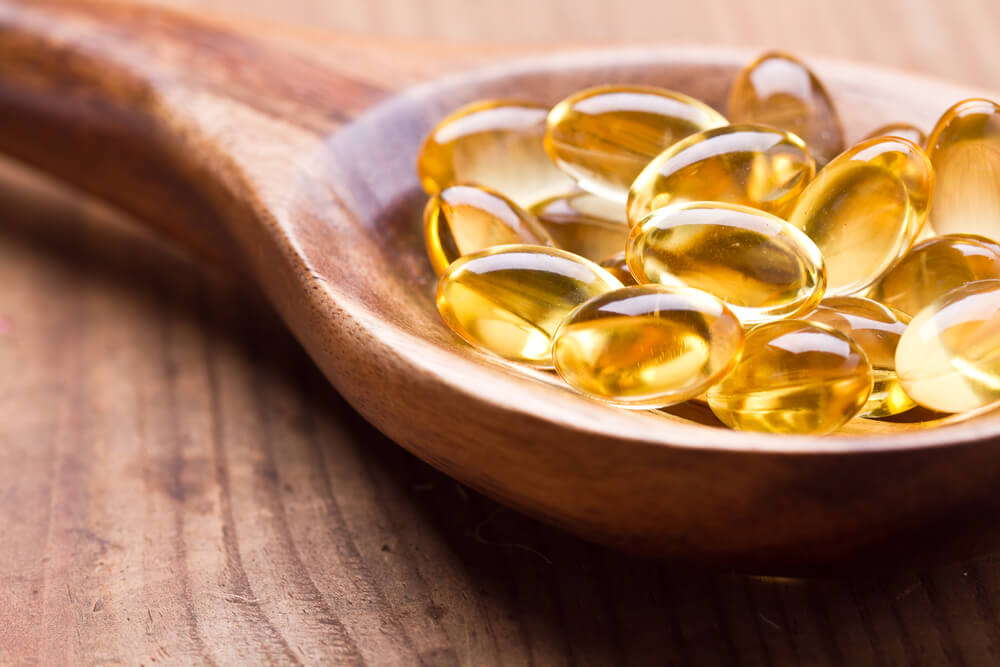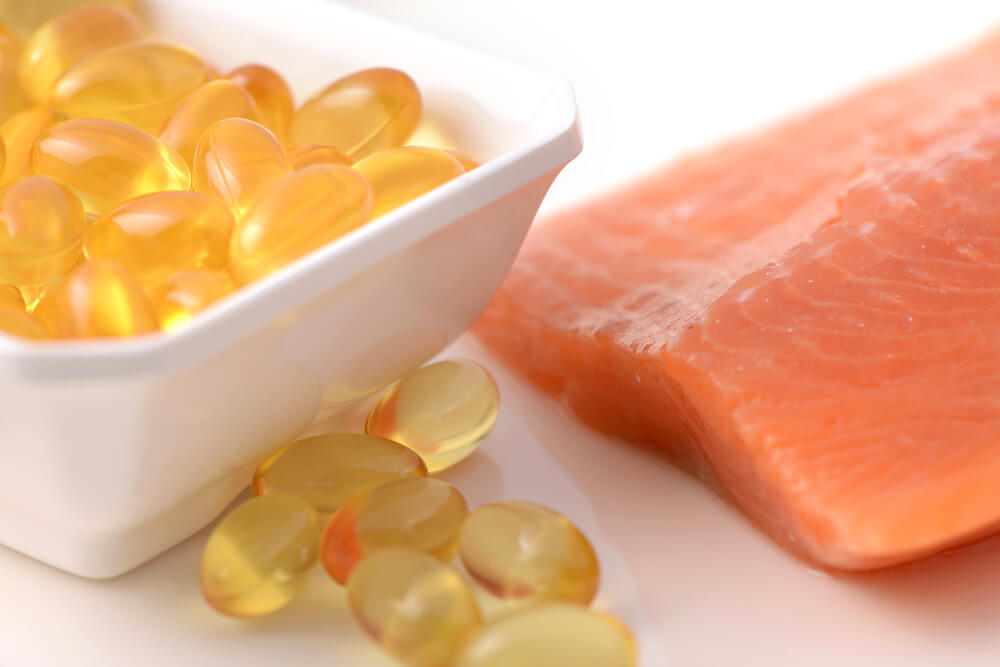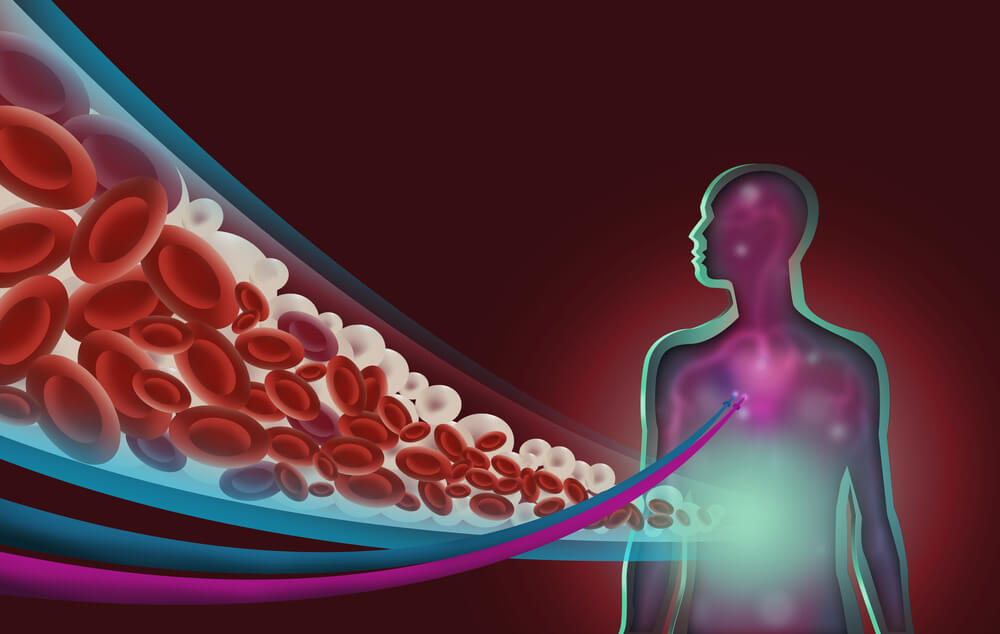You’ve heard about all the good fish oil can do. But, did you know that it might just save your life? Read on to find out how fish oil can help your body, mind and life!
Fish oils do a lot for the body. This includes helping with memory, healthy hair and nails as well as clearer skin.
Why?
They have omega-3 fatty acids, which are essential nutrients.
Your body can’t make these nutrients by itself. You can only get them by eating fruits, veggies, nuts and fish oils. Fish oils are from fish like salmon, herring, mackerel and others. These oily fish have 15% healthy fats. Non-oily fish, like white fish, have less than 2%.
If eating fish isn’t your thing, then you can try a supplement. Fish oil is very common in liquid and capsule form. Many doctors prescribe it to patients whose diets aren’t on point.
What Are The Main Benefits of Fish Oils?
You’ve likely heard about the obvious benefits of fish oils. Now there are new benefits being discovered by researchers. All the science agrees that fish oil contributes to the health of almost every part of the body. Known for improving cardiovascular health by dropping risks and side effects of cardiovascular disease, fish oil can also reduce abnormal heartbeats (arrhythmias) that could lead to sudden death.
Other benefits of fish oils are plenty. They are also known to improve skin, giving it a healthy, radiant glow. In case you haven’t figured it out yet, fish oils are the closest thing you’ll ever come to nutritional magic. If you aren’t getting any in your diet, you need to start.
Why Should I Take Fish Oils For My Heart?
Let’s dig a little deeper. Fish oils contribute to overall bodily health because they have omega-3 fatty acids DHA (Docosahexaenoic Acid) and EPA (Eicosapentaenoic Acid). These improve heart health by decreasing triglycerides, or fat lipids, that are found in the blood.
This prevents cardiovascular disease and increases oxygenated blood flow. Oxygenated blood flow repairs damaged cells and generates new ones. This reduces the risk of diabetes and heart disease, as well as heart attacks. Blood flow in the brain’s blood vessels becomes more oxygenated as well, allowing it to flow more freely. Better blood flow means a healthier body. It also means you’ll be able to build more muscle, faster because your body will heal faster.
How cool is that?

What Are Essential Fatty Acids?
Omega-3 fatty acids – DHA, EPA, and GLA (gamma-linolenic acid) – that are found in fish oils help your hair, skin and nails. These acids are essential fatty acids (EFAs). This means that your body can’t produce them by itself.
They’re found in membranes surrounding skin cells that are involved in a number of cellular processes. These processes help improve skin health. The benefits include hydrating skin, stimulating healthy skin cell production, supporting a healthy skin complexion, combating aging skin damage and nourishing hair, nails and skin.
It’s great for treating skin conditions like psoriasis, eczema, lesions and itching. Topical application can even help to produce arachidonic acid, which helps restrict the growth of inflammatory agents that spark psoriasis.
Fish Oils Help Your Immune System
Fish oils are also a great dietary source of vitamin D. This contributes to a healthy immune system and sturdy bones.
About 41% of the U.S. doesn’t get enough vitamin D. Eating oily fish may just be able to help out with that. Oily fish based meals like grilled salmon are high in vitamin D. One 3.5 ounce serving of salmon has roughly 360 IUs (International Units) of vitamin D. A couple of oily fish-based meals per week would take care of any vitamin D deficiency.
Do Fish Oils Help Your Brain?
Fish oils have great benefit to anyone with mental health problems. They can assist in treating Attention Deficit Hyperactivity Disorder (ADHD) because of the high concentration of omega-3 fatty acids found in fish oil.
Kids suffering from dyslexia, short attention span, poor coordination, hyperactivity, low concentration, impulsiveness, low IQ or learning disorders can all benefit from having fish oils in their diets. Brain mass is comprised of 60% fats, including EFAs like omega-3 and omega-6 so fish oil helps to improve overall brain function. Fish oils are one of the best ways to help your brain.

New Research On Fish Oils
New research shows that fish oils can help prevent psychotic episodes by reducing the symptoms of psychotic illnesses such as schizophrenia, psychosis, and bipolar depression. It seems too good to be true, but it is! Take a look at some of the health benefits of fish oils and how they work to reduce psychotic episodes.
Bipolar depression, or manic-depression illness, affects about 1% of people in the U.S. (2.3 million). This disease is marked by mood swings that shift from manic periods (extreme highs) to depression (severe lows). These mood swings typically have nothing to do with events in a person’s life and affect behavior, physical health, feelings, thoughts, and functioning. This usually starts in teen years, but can begin as early as childhood or as late as the mid-forties.
The presence of omega-3 fatty acids in fish oils allow it to fight depression, mental fatigue, stress, suicidal tendencies and nervous disorders. Fish oil assists with mood and bipolar disorder treatment. The EFAs help those experiencing bipolar depression. This is why countries that consume fish on a frequent basis tend to have less people with depression.
There is also research that proves fish oils cuts hostility and violence. Prisons that follow a diet rich with fish oils have seen a large drop in homicide rate. Fish oils may even help those with more plaguing mental illnesses.
Are Fish Oils A Cure For Mental Illness?
Scientists found that young adults experiencing or at risk for psychiatric disorders such as schizophrenia, psychosis or bipolar depression may be able to stave off psychotic episodes with a new potential psychotherapy that involves fish oils. The study focuses on teens and young adults in their early twenties who are at high risk for mental illness.
Young adults with a family history of severe mental illness are more likely to start showing indicators of schizophrenia in early young adulthood. These indicators are marked by recurrent psychotic episodes such as hallucinations, delusional thinking and cognitive dysfunction. This includes short attention span, delirium, spatial disorientation, irrational behavior and memory loss.
There were 81 young adults, aged 13 to 25, in the trial. Of the group, 41 participants were given fish oil supplements while the rest received placebo pills for a 12-week period. Among those who took the fish oils for three months, scientists found an overall decrease in severe psychotic episodes. Also, the majority of them no longer showed early indicators of developing full-blown psychosis.
Those who received placebo pills had a quicker onset of psychosis. Scientists concluded that those who took the fish oil had a lowered risk of psychotic episodes for up to seven years. Just 10% of the group who took fish oil developed mental illnesses compared to 40% of the placebo group. Imagine the benefits of taking fish oil supplements on a steady basis!
It’s been about seven years since the study ended and more studies are being conducted. But, it’s a great reason to give fish oils a try. The proof is in the fish oil! They have neurotransmitters that are essential to increasing overall mental health and enhancing the healthy regeneration of brain cells.
Are Fish Oils Better Than Antidepressants?
Fish oils can be a much better choice than antidepressants prescribed to those who’ve had major psychotic breaks. Many antidepressants have bad side effects and don’t reduce the symptoms of schizophrenia and other psychiatric disorders.
The FDA has warned of psychiatric drugs increasing hostility and rage in children and young adults. Children with ADHD, and children and adults with depression, are given these harsh drugs that can have adverse effects on mental illness. Some even greatly increase the risk of suicide in children, adolescents and young adults.
Psychiatric drugs have awful side effects for adults, sometimes resulting in stroke, heart attack and sudden death. The trial proves that fish oils are a great natural alternative to some of these harsh psychiatric drugs.
Although the trial was on adolescents and young adults, they aren’t the only ones who benefit from fish oils. They can improve overall brain health among adults of all ages by increasing brain volume.
One study showed that people who take fish oil supplements have a 2.7% larger hippocampus than those who don’t. The hippocampus is the part of the brain that’s linked with memory. Although the two aren’t directly related, fish oils are known to decrease risks of developing neurodegenerative diseases such as dementia and Alzheimer’s in older adults. This, as well as freeing blood flow in the brain’s blood vessels, makes fish oils a win for boosting overall brain health.
Don’t Overdo It!
While fish oils are healthy for you, it’s important not to over consume. That defeats the purpose and stops you from being able to get the best results. You must also know exactly how to buy, prepare and consume foods or supplements that have fish oils.
There are a few things to think about when buying fish oils. Quality is vital. Fish oil comes from freshwater, farm, ocean, deep and shallow sea fish. All of these could have become contaminated with toxins like mercury, dioxins, PCBs, arsenic and lead. These can adversely affect the body, killing any health benefits fish oils have. Just because a company claims its fish oil to be distilled or ultra-refined, that doesn’t mean much. Always check the standards and research before adding it to your diet.

How Much Fish Oil Should You Take?
To get the most from fish oil, make sure you’re taking a healthy amount. Two to three servings of fish per week are advised. The reason is because there aren’t many foods aside from fish that provide fish oils. If you can’t eat this much or just don’t feel like eating fish twice weekly, supplements are your best option.
There are tons of fish oil supplements. But, it’s vital you know what to look for when shopping for them. While most look for serving sizes, the real focus should be on the amount of omega-3s, DHA and EPA. A fish oil dose of 500mg isn’t the same as 500mg of DHA or EPA. Be sure to check the label to get an accurate percentage of omega-3s. Two servings of fish oil per week are the same as a daily total of 500mg of DHA and EPA.
This would take care of you for the week with no added supplements needed. Therefore, a fish oil supplement with a combined total of about 300mgs of Omega-3s would only need to be taken twice daily to reach the daily recommendation of 500mg a day.
Conclusion
Chances are you don’t love fish. We get that. The benefits of fish oils can’t be overlooked. Better skin, hair, blood flow and mental wellness are all things you can’t take for granted. If you want to build a great body, you need fish oil. It doesn’t get any clearer than that.
Be careful not to consume too much fish oil. Over consumption can be bad for you. You should also make sure to check the types of oily fish you eat. Like it or not, some are high in mercury.
Mercury is a naturally occurring metal that’s been released into the air and carried to the water by pollution. Once it reaches the water, bacteria transforms mercury into a soluble form that fish can absorb. The accumulation of this toxin in the blood can have negative effects on unborn babies and young children by harming their nervous systems.
Most fish contain this methylmercury and not all oily fish are healthy. King mackerel and white tuna are among oily fish with high levels of methylmercury. Oily fish that are low in mercury include salmon, Atlantic mackerel, sardines and herring. You should grill or broil fish. Don’t fry them! Oily fish fried or prepared in sandwiches no longer produce the same healthy benefits as those grilled or broiled.
By Taylor Zhane
Latest posts by Terry M (see all)
- Garage Gyms - Aug 1, 2018
- Kettlebells – Why They Should Be Added To Your Routine. - Jul 24, 2018
- Weight Belts: What Are They Really For? - May 31, 2018










[…] benefits of omega-3s found in chia seeds are known to reduce high cholesterol, combat heart disease, reduce inflammation […]
[…] Fish oil is a supplement you should be taking already (you should also already be taking the BCAAs and creatine though as well). Beyond this, a multi-vitamin, and any other vitamins you normally take during the day. There are a few specifics you’ll need to find. […]
[…] Fish oil is great for your heart. There are other options out there as well that deliver the essential omega-3 fatty acids, but when looking for the biggest bang for your buck, nothing else out there can compare with fish oil. […]
Amazing fish oil, a lot of benefits we can get. Thank you for sharing your knowledge.
[…] inflammation responses, and help get you back up and running faster. It is more effective than fish oil and […]
[…] inflammation responses, and help get you back up and running faster. It is more effective than fish oil and […]
[…] inflammation responses, and help get you back up and running faster. It is more effective than fish oil and […]
[…] Fish oil, in addition to helping with strengthening your heart and improving your cardiovascular system, it helps your body recover from inflammation. […]
[…] good old fashion fish oil. It’s the supplement your grandmother has been taking for her entire life and probably tried to […]
[…] Fish oil, in addition to helping with strengthening your heart and improving your cardiovascular system, it helps your body recover from inflammation. […]
[…] if you are not yet taking it, fish oil will help reduce inflammation of your muscles, which will allow you to recover faster and do your […]
[…] an incredibly important part of underwater ecosystems, providing shelter and nourishment for fish—and even mammals. As one of the world’s fastest-growing plants, kelp patches can expand more […]
[…] an incredibly important part of underwater ecosystems, providing shelter and nourishment for fish—and even mammals. As one of the world’s fastest-growing plants, kelp patches can expand more […]
[…] an incredibly important part of underwater ecosystems, providing shelter and nourishment for fish—and even mammals. As one of the world’s fastest-growing plants, kelp patches can expand more […]
[…] an incredibly important part of underwater ecosystems, providing shelter and nourishment for fish—and even mammals. As one of the world’s fastest-growing plants, kelp patches can expand more […]
[…] an incredibly important part of underwater ecosystems, providing shelter and nourishment for fish—and even mammals. As one of the world’s fastest-growing plants, kelp patches can expand more […]
[…] to Children and Adults with Attention-Deficit/Hyperactivy Disorder (CHADD), results from omega-3 fatty acids are modest, but this may be all you’re looking for if you or a child suffers from modest ADHD. […]
[…] to Children and Adults with Attention-Deficit/Hyperactivy Disorder (CHADD), results from omega-3 fatty acids are modest, but this may be all you’re looking for if you or a child suffers from modest ADHD. […]
[…] to Children and Adults with Attention-Deficit/Hyperactivy Disorder (CHADD), results from omega-3 fatty acids are modest, but this may be all you’re looking for if you or a child suffers from modest ADHD. […]
[…] to Children and Adults with Attention-Deficit/Hyperactivy Disorder (CHADD), results from omega-3 fatty acids are modest, but this may be all you’re looking for if you or a child suffers from modest ADHD. […]